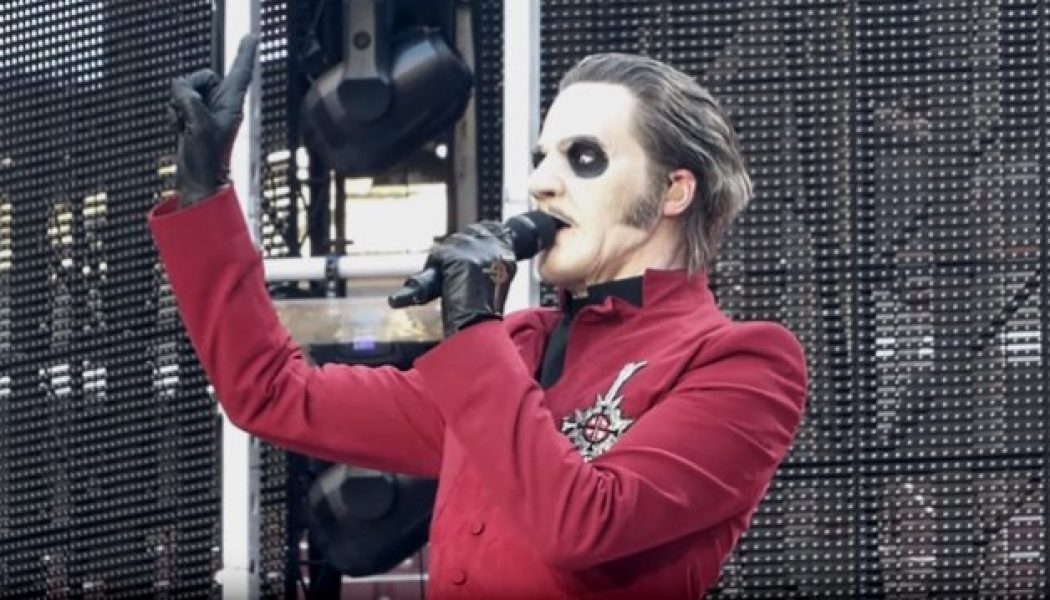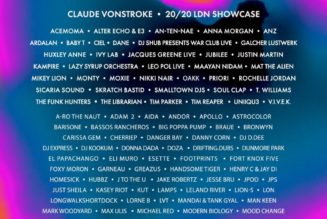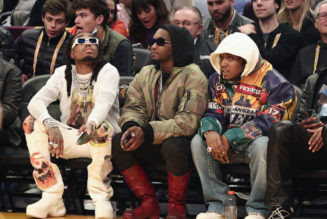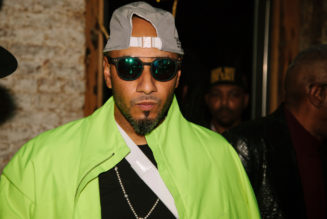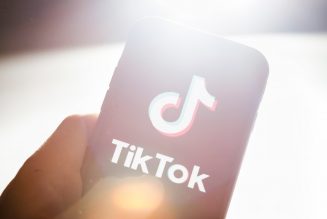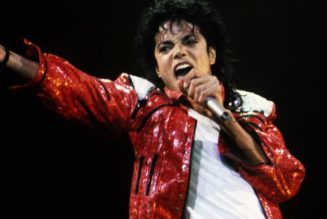
The makers of Ghost, the hand-crafted British ultra-premium vodka, appear to have won the legal battle against GHOST leader Tobias Forge over the sale of their product.
Earlier this year, Ghost Drinks Ltd. was sued by the Swedish occult rock band over the use of the name. Since GHOST had also marketed a gin using the group’s name, Forge and his representatives claimed the vodka could conceivably have caused marketplace confusion. The vodka company, which launched in June 2015, countered that the GHOST mainman had known about their product since 2016.
On December 22, the Swedish Patent And Market Court, which deals with intellectual property infringement and validity cases, issued a judgment saying that the term “ghost” is a generic word and is therefore free for Ghost Drinks to use.
Ghost Drinks launched the product “Ghost vodka” in April 2015. At that time, Forge‘s company Svensk Drama Pop (SDP) had already registered the European Union trademark for alcoholic beverages, but no use occurred. SDP had also not made actual use of its trademark within the five-year period required by law. The registration took place on November 30, 2013 and the use didn’t start until February 2019.
According to the Patent And Market Court, there are major visual differences between the characteristics. SDP‘s brand has a strong figurative design where one can, with some difficulty, read the word “ghost.” The defendants’ trademarks in the form of the word “ghost” have a completely ordinary font that differs significantly from SDP‘s figurative mark. According to the court, an average consumer would notice these differences in brand similarity even without examining the trademarks in detail.
Taking into account the obvious visual differences between the trademarks, the court found that, taken as a whole, there is no similarity between the trademarks as it pertains to trademark law.
In an overall assessment, the Patent And Market Court found that there is no brand similarity between the parties’ trademarks and that there is no risk that circulation in the market in which the parties market their products cannot keep apart the characteristics. There is also no risk that the public will get the impression that the goods come from the same company or from companies with financial ties. The use therefore does not infringe SDP‘s trademarks and the claims for fines and damages cannot be upheld on that ground alone.
Since SDP‘s action has been dismissed, the company is not entitled to compensation for its costs.
The vodka brand first revealed the existence of a conflict via a Facebook post in May, later contending — without evidence — that Forge was suing the company because he needed money after settling with four ex-members of the group.
“We were completely unaware of GHOST the band upon launch,” Ghost Drinks said. “We were approached by their management to do a collaboration with the vodka back in 2016, among other projects, but decided not to pursue these any further. Four years later in 2020 we now have a court date in Stockholm. If there was some genuine concern about us why wasn’t it raised in 2016? Why have they waited for us to continue to build for another four years?
“The main basis for the legal argument from the band’s side is that they hold a trademark for their figurative in Class 33 (alcoholic beverages excluding beer). They have a gin which launched many years after our vodka and say that we cannot trade as consumers will mistake our vodka for their gin and it has caused them to lose revenue.
“There are many products and brands using Ghost across a variety of sectors and industries. Ghost is an ancient internationally used and understood word. There are dozens of cases of co-existence that show the word can be used in harmony and widely by a multitude of people, brands and products.
“We aren’t using a logo with any similarity or attempting to trick consumers into thinking we are endorsed by GHOST the band. In fact our demographics are very different.”
Seven months ago, an attorney for the band GHOST confirmed reports that Ghost Drinks was being sued by the group over the use of the name, telling Loudwire in a statement: “Svensk Drama Pop (SDP) holds an exclusive trademark registration throughout the European Union for the figurative sign ‘Ghost.’ Those rights are licensed to Global Merchandising Services Ltd, in whose interest these proceedings are brought. This case has been on-going for months now, and numerous attempts have been made throughout that period of time to reach an amicable settlement.”
GHOST the band has licensed its name and imagery to Global Merchandising Services for use on a GHOST-branded gin and beer.
The attorney added: “This case is not about ‘gin vs. vodka,’ it’s about trademark rights that grant ownership for any and all alcoholic beverages — gin, whiskey, wine, beer, ale, vodka, etc. For any other EU-based entity to use the word ‘Ghost’ as part of its alcoholic beverage brand name would be in violation of SDP‘s exclusive rights. SDP is entitled to defend these rights as any other business would when their trademark rights have been infringed.”
In 2015, GHOST collaborated with Sweden’s Nils Oscar Brewery on two beers: Grale and Lincopia.
Forge performed as a “new” Papa Emeritus on each of GHOST‘s first three LPs, with each version of Papa replacing the one that came before it. Papa Emeritus III was retired in favor of Cardinal Copia before the release of 2018’s “Prequelle” album.
In October 2019, Forge confirmed to U.K.’s Kerrang! magazine that there would be a new character fronting GHOST by the time the group’s next LP sees the light of day.
“Prequelle” debuted at No. 3 on the Billboard 200 and featured the chart-topping singles “Rats” and “Dance Macabre”.
In December 2018, GHOST nabbed two more Grammy nominations, “Best Rock Album” for “Prequelle” and “Best Rock Song” for “Rats”. GHOST was previously honored at the 2016 Grammy Awards in the “Best Metal Performance” category.
